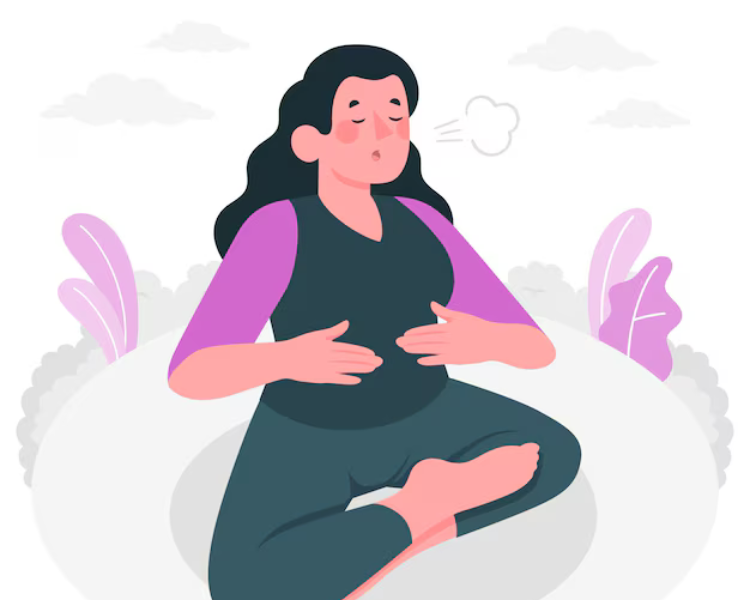Oxytocin: The Magic Hormone for Our Health
Did you know that our body contains a secret hormone capable of having a considerable impact on our health?
This hormone is oxytocin! Better known by the tender name of “the lovers’ hormone”.
Rituals that want you well
Sweet words, a declaration of love, flowers or chocolate.
There are a multitude of ways to show your loved one how much you care.
But if there is one that should not be overlooked, it is the hug !
Because it may seem trivial, but the simple act of holding someone close plays a crucial role in our mental and physical balance.
Thanks to the release of a precious hormone: oxytocin.
What is oxytocin? How can this incredible substance work wonders on our body and mind and how can we best use it to enjoy all its benefits? We explain everything to you today.
What is oxytocin?
Relationships with others, reproduction, childbirth, breastfeeding…
Oxytocin is a hormone naturally secreted by our brain on different occasions which plays a key role in our social bond with others but also for our physical and psychological well-being or even our immunity.
A real energy bomb within reach, this hormone definitely wants the best for us!
The attachment hormone
One of the most fascinating properties of oxytocin is its role in human relationships. It is particularly because it is released in large quantities during orgasm and because it promotes social bonding by strengthening emotional connections between individuals that oxytocin is known as the “love hormone”.
But it would be reductive to stop there since its role goes beyond the boundaries of the couple and the romantic relationship. Indeed, our body also releases a large quantity of oxytocin when we are close to our friends, our family, our children...
Its role? To facilitate the creation of strong emotional bonds and strengthen our ability to trust others. But it also plays a crucial role in empathy and generosity towards others.

The motherhood hormone
Oxytocin also plays a crucial role in our reproductive health. During childbirth, this hormone is produced in large quantities, which stimulates uterine contractions and thus facilitates the birth process.
After delivery, oxytocin continues to be released, strengthening the bond between mother and baby. But its role is also central during breastfeeding since, in close collaboration with prolactin (the lactation hormone), oxytocin promotes the ejection of milk during feedings.
Furthermore, recent studies seem to show a key role of oxytocin in parental behavior by promoting the bond between the parent and their child to promote protection and care given to their baby.

The feel-good hormone
It would be reductive to consider oxytocin as the hormone of bonding with others since it also plays a central role in our sense of well-being in many ways.
- By regulating cortisol, our stress hormone, oxytocin reduces stress and anxiety.
- By releasing endorphins, it causes a feeling of well-being and immediate calm.
- By stimulating the release of serotonin, oxytocin promotes falling asleep and quality sleep.
- By promoting the production of dopamine, the happiness hormone, oxytocin is similar to a real natural antidepressant.
- By reducing heart rate and blood pressure, oxytocin helps maintain our cardiovascular health.
Through all these actions, oxytocin is also a powerful ally in preserving our well-being throughout our menstrual cycle.
By reducing stress and promoting relaxation throughout the body, oxytocin therefore helps to reduce menstrual cramps and discomfort during menstruation.
So think about doing activities that stimulate the production of oxytocin, you will feel the benefits in your body and mind.
Obviously, if discomfort or pain persists during your menstrual cycle, you can combine these good practices with a course of our Ocycle formula to rebalance your hormones and regain daily menstrual comfort.

The healing hormone
Another interesting property of oxytocin is its ability to promote healing. Studies have shown that this hormone can speed up the healing process, reduce inflammation, and boost the immune system.
Finally, oxytocin may also have effects on the digestive system by helping to regulate appetite, improving digestion, and reducing gastrointestinal problems such as ulcers or inflammation.
How to boost your oxytocin?
In summary, oxytocin is a hormone that is essential to many aspects of our social and emotional lives. It plays a key role in forming and maintaining social relationships, motherhood, trust, empathy, and general well-being.
So here are some tips to promote the natural production of this precious hormone to help you (re)find the balance and well-being you deserve.
- Hug those you love (It only takes a few minutes a day spread out morning, noon and night to feel the effects of oxytocin)
- Cultivating healthy relationships and spending time with loved ones
- Allow yourself moments of relaxation, do breathing exercises or listen to relaxing music.
- Having sex with our partner
- Do yourself some good!
Oxytocin has the ability to reduce stress, improve our mood, and even strengthen our memory. So when you're feeling stressed, take a few minutes to stimulate your body to release oxytocin and reap all these benefits.
A Hormone That Can Revolutionize Your Health
In conclusion, oxytocin is an extraordinary hormone that can revolutionize your health. Cultivate healthy relationships, spend time with your loved ones, take care of yourself and enjoy moments of joy and love.
Your body will release oxytocin, helping you find the balance and well-being you deserve.




